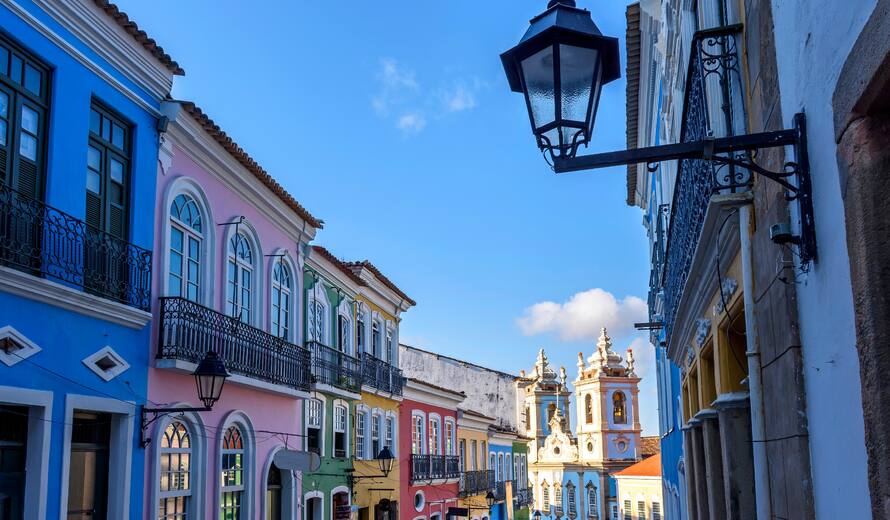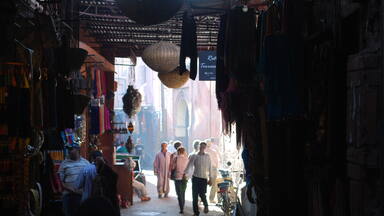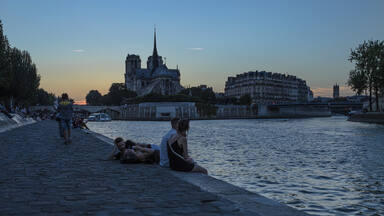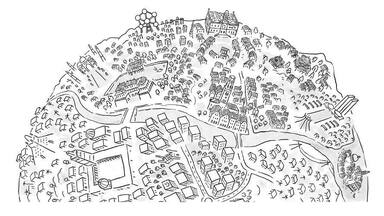10 years of the 2011 UNESCO Recommendation on the Historic Urban Landscape
10 November 2021 marks ten years of the 2011 UNESCO Recommendation on the Historic Urban Landscape.
On 10 November 2011 UNESCO’s General Conference adopted the new Recommendation on the Historic Urban Landscape by acclamation, the first such instrument on the historic environment issued by UNESCO in 35 years.
The Recommendation on the Historic Urban Landscape (HUL Recommendation), calls on Member States to integrate conservation and management of cultural heritage in cities and settlements with policies and practices for sustainable urban development. It applies to all historic cities (not only to historic cities inscribed on the World Heritage List) and it advocates a landscape approach for identifying, conserving, and managing historic areas within their broader contexts, considering the interrelationships between the physical forms, natural features, and social and cultural values. The HUL Recommendation is an additional tool to integrate policies and practices of conservation of the built environment into the wider goals of urban development in respect of the inherited values and traditions of different cultural contexts. This tool, which is a “soft-law” to be implemented by Member States on a voluntary basis. In order to facilitate implementation, the UNESCO General Conference recommended that Member States take the appropriate steps to:
- adapt this new instrument to their specific contexts;
- disseminate it widely across their national territories;
- facilitate implementation through formulation and adoption of supporting policies; and to
- monitor its impact on the conservation and management of historic cities.
The 10th Anniversary of the 2011 Recommendation on the Historic Urban Landscape (HUL Recommendation) took place online through a launch event for the UNESCO HUL Call for Action and a global conference on the application of the HUL Recommendation to World Heritage cities.
The online events, consisting of several meetings and workshops, took place between 16 and 24 June 2021, marking the beginning of the celebrations. The events gathered more than 86 speakers (including 9 Mayors/city leaders and 35 renowned experts) from 39 countries. Site managers and city authorities presented case studies from 19 World Heritage cities and 15 mayors and heads of organisations provided video messages reconfirming the importance of the HUL Recommendation and reaffirming their commitment to support the UNESCO HUL Call for Action. The four days of exchange and discussion provided a rich opportunity to share experiences, challenges and lessons learned from the local strategies and actions to implement the HUL Recommendation.
The celebrations for the 10th anniversary of the HUL Recommendation were opened by Mr Ernesto Ottone R., UNESCO Assistant Director-General for Culture, who launched the HUL Call for Action, inviting cities worldwide to raise awareness about the Recommendation and accelerate inclusive urban heritage management through the HUL Recommendation approach. Mayors and City leaders from all regions of the world gathered in two panels to share experiences and perspectives on the application of HUL in their cities, followed by a session of insights provided by high-level experts.
More than 150 individuals, municipalities and institutions have responded to the HUL Call for Action so far. The UNESCO World Heritage Centre (WHC) will provide guidance and follow up on their initiatives during the next months. A number of cities have also come forward with proposals to organise thematic World Heritage City Labs. Each of these events will put the focus on particular challenges that historical cities face such as water and climate change, integrated management, management plans, heritage economics, survival of traditional skills, etc. These events keep the spirit of co-creation and resume the process of developing effective strategies positioning heritage at the core of sustainable development, which was initiated by the first World Heritage City Lab in June 2020. More information on these events will be shared on a regular basis on the website of the WHC.
Learn more about the 10th anniversary celebrations here:
https://whc.unesco.org/en/events/1596/
Join the call for action here:
https://on.unesco.org/3Dfd242







